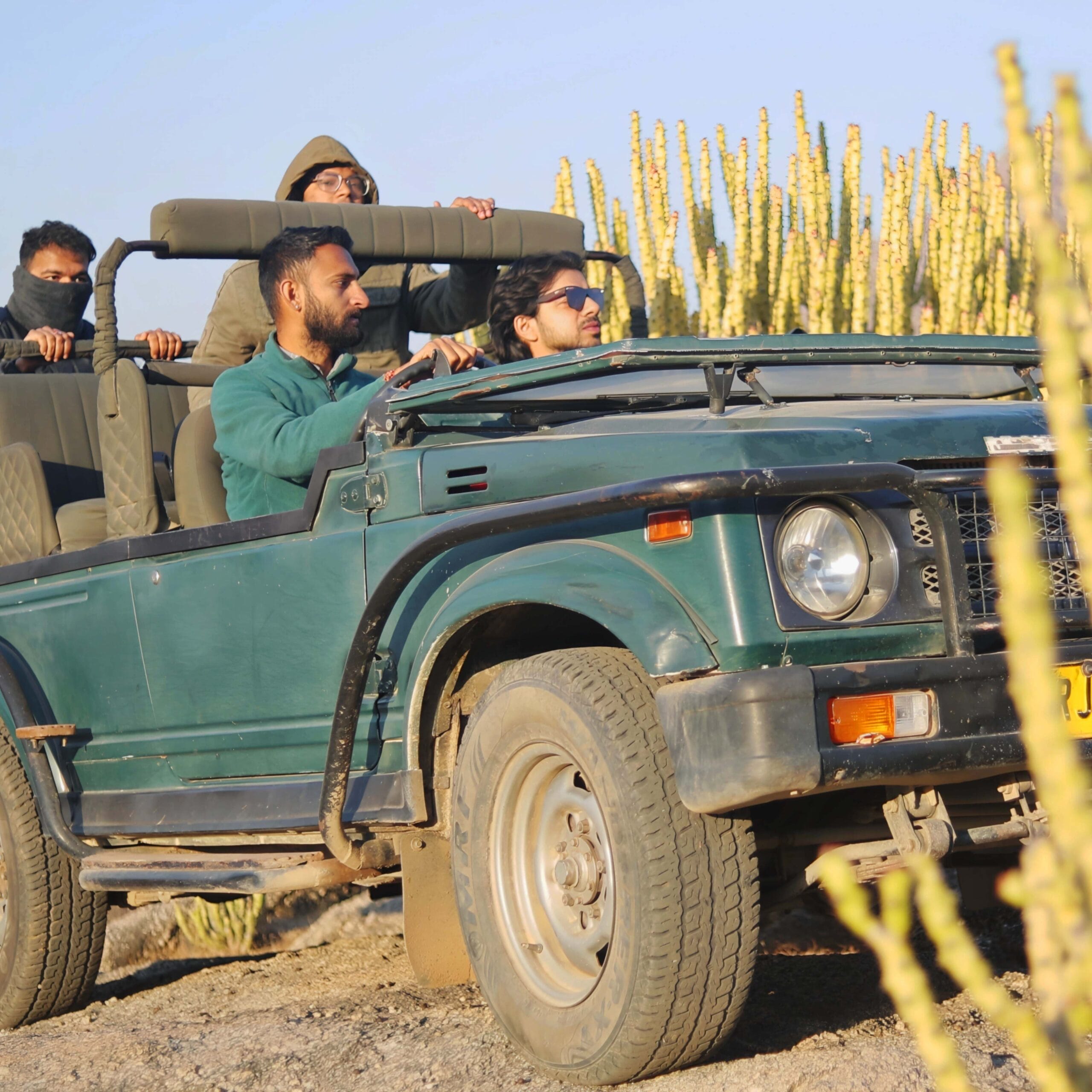Introduction: A World Where Time Stands Still
In the rugged wilderness of Rajasthan lies Jawai Bandh, not only famous for its leopards but also for its lesser-known stars—the mugger crocodiles. These prehistoric predators silently rule the calm waters of the dam and offer a truly wild and rare spectacle for nature lovers.
Mugger Crocodiles: Nature’s Time Travelers
🧬 Scientific Snapshot
- Name: Mugger Crocodile (Crocodylus palustris)
- Commonly Known As: Marsh crocodile
- Conservation Status: Vulnerable (IUCN Red List)
- Average Length: Up to 13–15 feet
- Diet: Carnivorous – primarily fish, birds, small mammals
- Nature: Territorial but calm unless provoked
These ancient reptiles are incredibly adaptive and have found Jawai’s dam a perfect natural sanctuary.
Why Jawai Bandh is Perfect for Crocodiles
The dam’s unique ecosystem offers:
- Abundant fish population
- Marshy areas ideal for nesting
- Secluded rocky banks for basking
- Low tourism pressure and high respect from locals
Together, these make Jawai one of the safest natural habitats for crocodiles in India.
Where and When to Spot Crocodiles
Best Time:
- Early Morning: Sunbathing crocs on banks
- Late Afternoon: Active swimming or cooling down
Best Spots:
- Western banks of Jawai Dam
- Granite outcrops near water
- Safari tracks with guide-led nature walks
Crocodiles and Humans: Coexisting in Harmony
One of Jawai’s most remarkable aspects is the peaceful relationship between crocodiles and the local Rabari tribe. You’ll often find villagers fishing, washing, or walking close to crocodile zones, with no fear or conflict.
Locals see these reptiles as guardians of water and often consider their presence a sign of divine protection.
Crocodile Safari Experience in Jawai
At JawaiSafari.org, you can book customized wildlife tours that include:
- Guided crocodile watching at Jawai Dam
- Optional boat rides near safe zones
- Leopard + crocodile combined safaris
- Nature photography and videography tours
✅ All safaris are conducted under expert local guides for safety and authenticity.
Conservation Efforts and Eco-Tourism
The mugger crocodile is vulnerable in many parts of India due to habitat loss and poaching. Jawai is different. With community-led conservation and responsible tourism, the crocodiles here continue to thrive peacefully.
By choosing eco-conscious safari operators, you directly contribute to protecting Jawai’s wildlife.
Spiritual Energy of Jawai: Where Nature Breathes
From crocodiles and leopards to ancient temples and caves, Jawai has an energy that feels deeply spiritual. It’s not just about animals—it’s about the unspoken peace between all living beings.
🧭 Plan Your Trip Today
Want to witness crocodiles in the wild like never before?
Visit JawaiSafari.org to plan your custom crocodile and leopard safari, luxury tent stay, and offbeat Rajasthan experience.
❓ Frequently Asked Questions (FAQs)
Q. Are crocodiles safe to observe in Jawai?
A. Yes. With trained guides and safe viewing zones, sightings are non-intrusive and peaceful.
Q. How many crocodiles live in Jawai Bandh?
A. The exact number is unknown, but sightings are frequent across various parts of the dam.
Q. What else can I spot along with crocodiles?
A. Leopards, hyenas, nilgai, birds like flamingos and owls, and even sloth bears!
Q. What should I carry for crocodile spotting?
A. Camera with zoom lens, binoculars, water bottle, sun cap, and earthy clothing.
🐊 Final Thoughts
Jawai is one of the rare places on Earth where crocodiles are not feared but respected, where wild predators coexist with humans, and where nature is still free to breathe. If you’re looking for an offbeat, spiritual, and deeply wild experience—this is your sign to visit Jawai Bandh.


